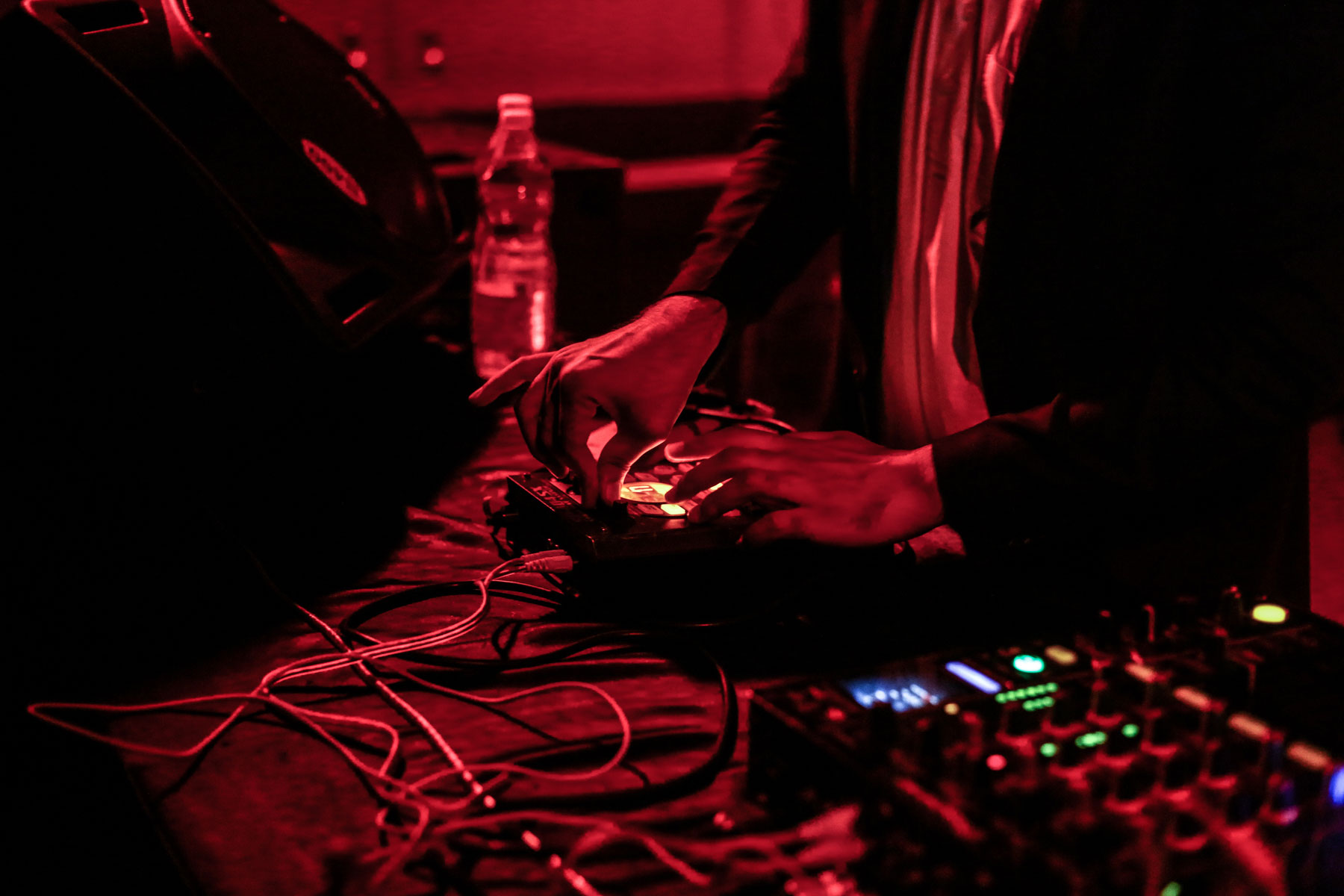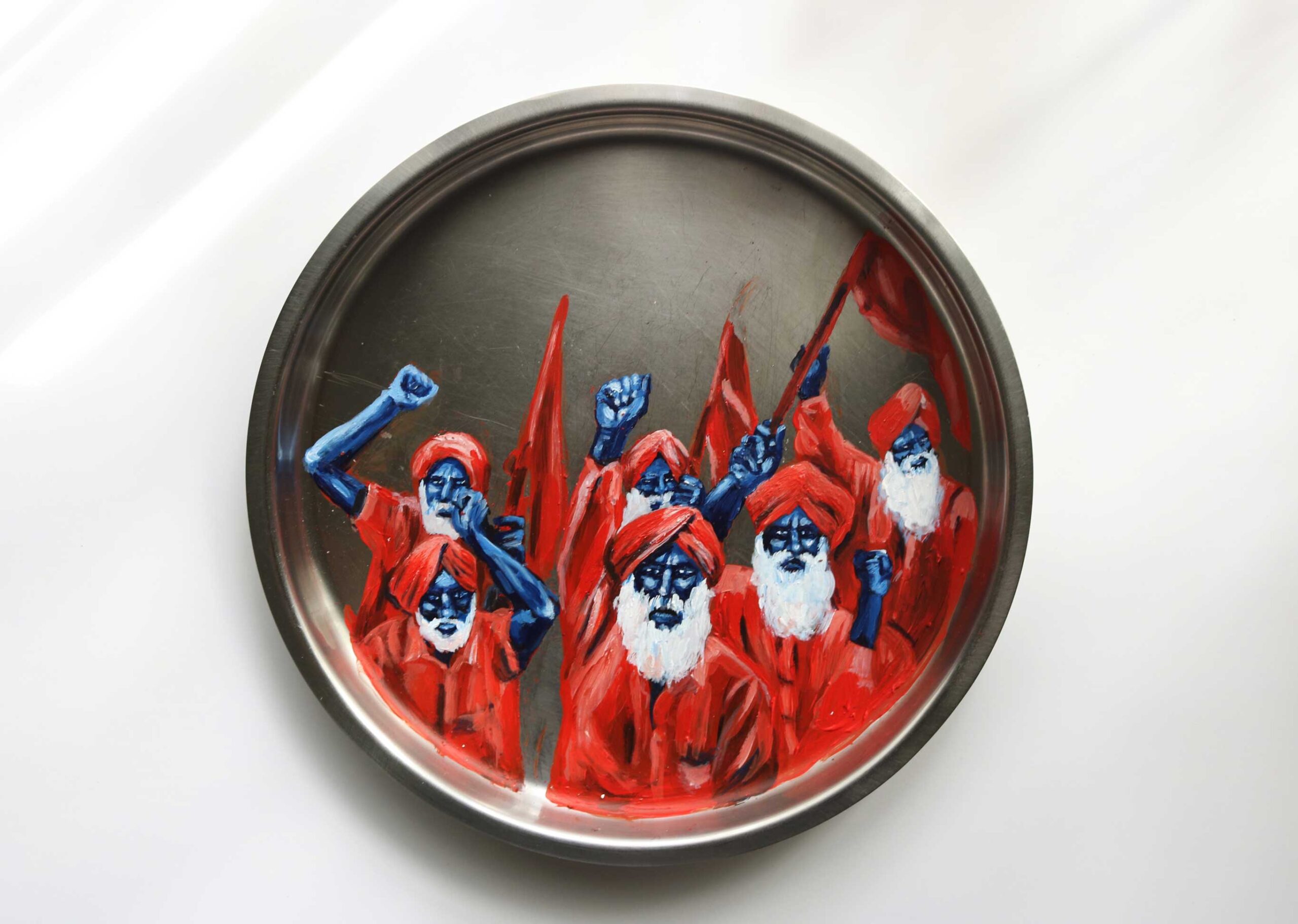Babloo Babylon, as it stands, is an enigma in the indie electronica scene. Any existence of the anonymous musician can be traced only through his (rather sparse) Soundcloud page, or a trail of darkly humorous, bored and despairing tweets on his Twitter.
The musician, who claims to be from Jhumri Telaiya has since a rather expository article on Scroll.in, “broken” the internet, so to speak. With an increasing social presence (he played four gigs last year: Boxout Wednesdays, a Listening Room session, Magnetic Fields and an unMute gig) and slow but steady growth in his music, the phantom personality of Babloo is slowly but surely climbing the ranks.
Anonymity aside, his music is a refreshingly cool melange of the old and new, using old Bollywood tracks, slicing and interspersing them with electronica which he then titles suggestively. Hence, we have Baghdad Groove and Gabbarr-Gabbar. The latter, a track only a minute and 58 seconds long nevertheless stays with the listener, due to its seamless interspersal of 70s Bollywood with the voice of an anonymous woman at the end, who speaks in English. Baghdad Groove, meanwhile, along with another track, Parallel, are a well-timed execution of pronounced beats that form their own conversation with the music. It is clear that Babloo knows when to interact more with the sounds he reworks and when to let them act for themselves. Thus, in both Baghdad Groove and Parallel, he interferes minimally. The end result is that unlike a lot of artists who do similar work with reference to mixing the old with the new, Babloo doesn’t pedestalize the old to the zone of no-interaction and godhood. 1+1 begins with a groovy guitar twang that plays with an older track, almost acting as a solo to the larger musical structure of the song. Short though it is, you don’t stop listening because it has a sustained momentum of both voices, the guitar, and the older track, acting equally and fascinatingly with each other. Although we hate to depart into the zone of cliche phrases- it really does transport you to another time.
Hard as the listener may try, it is impossible to detach Babloo’s anonymity from his music. That is because his anonymity isn’t the quiet, bland, blanketed anonymity of the British musician Burial. His anonymity comes with a personality, and this personality, while deriving from his breezy social media is also supplemented by the naming of his tracks. The title Baghdad groove makes one think of Turkish men, bent over a pipe, while simultaneously echoing the image of old Bollywood, immediately post-Independent India: a montage of images that don’t quite belong anywhere apart from when you’re listening to his work. His ‘character’ has blended with the music. It is part of the fiction. So, while a number of musicians, such as the band Jungle (for some time) chose to remain anonymous to let the music talking, an often ignored part is the construct the music makes for its creator. Right now, as it stands, Babloo carries no baggage with him and so his personality too is a faceless name to a style of music, which is perhaps the most important part of his charm. Even apart from the obvious insularity present when you just let the music do the talking and don’t throw in a face to go with a name, surname, caste, gender, and pin code.
This is not an individual hiding behind the guise of anonymity in order to make it only about the music: this is a Dorian Gray-esque adventure where Babloo becomes an alternate ego, and art, fictionality and ‘real’ life cross boundaries to become what they are not. When asked about the mask he donned during performances, another famously anonymous musician and guitarist, Buckethead, replied, “There is no mask.”. What is important is the moment of performance- this isn’t an alter-ego as much as an identity in its own right.
Babloo is not quite dead, because he doesn’t exist anywhere apart from his music, social media, and occasional gigs but his lack of physical presence means he’s not quite alive either. His Soundcloud, his tweets and his presence is a readily accessible reality-but-fiction, far more interesting than your own, that you can access and analyze to death at any given second.
In some sense, his anonymity also breaks temporality and time stamps of age because his music entails surprising images, of a different time, and his anonymity only adds to making him seem perhaps wiser and older than he may actually be. What is also refreshing is the keen cultural awareness there is to this musician: in his interview with Scroll, he reveals having strong cultural ties to Jhumri Telaiya (which has become, at this point, a slightly comic reference in pop culture, as the author of the article notes), where he listened to radio podcasts such as Vividh Bharati and Radio Ceylon, the name Babloo would be mentioned frequently, which lead to his name. In addition to the reference to Om-Dar-B-Dar, the cult film by Kamal Swaroop.
Right now, Babloo is a pseudonym cloaked by a misted window. He is cultured, self-aware and smart. What is interesting about anonymity and artists is that the cloak oozes and threatens to slip at almost any given moment. And yet, with Babloo, the effect is dual. While the idea of his anonymity being shed away is a tantalizing proposition, his elaborate fiction keeps you hooked too, and you stay anyway demanding this contradiction stay aloft as, naturally, you enjoy both just as much as you enjoy the music.
For the sake of art, however, we hope he doesn’t give up the ghost. In his own words, he says, “Right now, this is not even the birth of Babloo. I have to help him grow from childhood to adulthood, after which he will get married, put out romantic songs, then maybe his dog will die, so he’ll be sad. It’s a living entity, and I’m treating it like that.”
In an age replete with bared identities and open-book lives, a face to a musician becomes as important as his music. With only a name and a cool personality, you get much more and it is interesting how much the idea of anonymity appeals to musicians who work with electronica- Deadmau5, British artist Burial, Daftpunk, and Zhu are examples. The idea of Insta-fame entails that names are traded off with bodies, consumed by an audience guzzling down artists and spitting them out like fast food. We’re sticking with Babloo Babylon’s elaborate fiction, instead, because it is precisely what invites you to look closer, listen closer and engage.
You can listen to his music here:
Text by Anandita Thakur.







